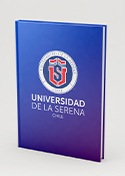Ciencias Naturales
Permanent URI for this community
Browse
Browsing Ciencias Naturales by Subject "ASYMMETRY"
Lopsided galaxies in a cosmological context: a new galaxy-halo connection
(MONTHLY NOTICES OF THE ROYAL ASTRONOMICAL SOCIETY, 2023-06-22) Varela-Lavin, S.; Gómez, F. A.; Tissera, P. B.; Besla, G.; Garavito-Camargo, N.; Marinacci, F.; Laporte, C. F. P.
Disc galaxies commonly show asymmetric features in their morphology, such as warps and lopsidedness. These features can provide key information regarding the recent evolution of a given disc galaxy. In the nearby Universe, up to & SIM;30 per cent of late-type galaxies display a global non-axisymmetric lopsided mass distribution. However, the origin of this perturbation is not well understood. In this work, we study the origin of lopsided perturbations in simulated disc galaxies extracted from the TNG50 simulation of the IllustrisTNG project. We statistically explore different excitation mechanisms for this perturbation, such as direct satellite tidal interactions and distortions of the underlying dark matter distributions. We also characterize the main physical conditions that lead to lopsided perturbations. 50 per cent of our sample galaxy have lopsided modes m = 1 greater than & SIM;0.12. We find a strong correlation between internal galaxy properties, such as central stellar surface density and disc radial extension with the strength of lopsided modes. The majority of lopsided galaxies have lower central surface densities and more extended discs than symmetric galaxies. As a result, such lopsided galaxies are less self-gravitationally cohesive, and their outer disc region is more susceptible to different types of external perturbations. However, we do not find strong evidence that tidal interactions with satellite galaxies are the main driving agent of lopsided modes. Lopsided galaxies tend to live in asymmetric dark matter haloes with high spin, indicating strong galaxy-halo connections in late-type lopsided galaxies.
